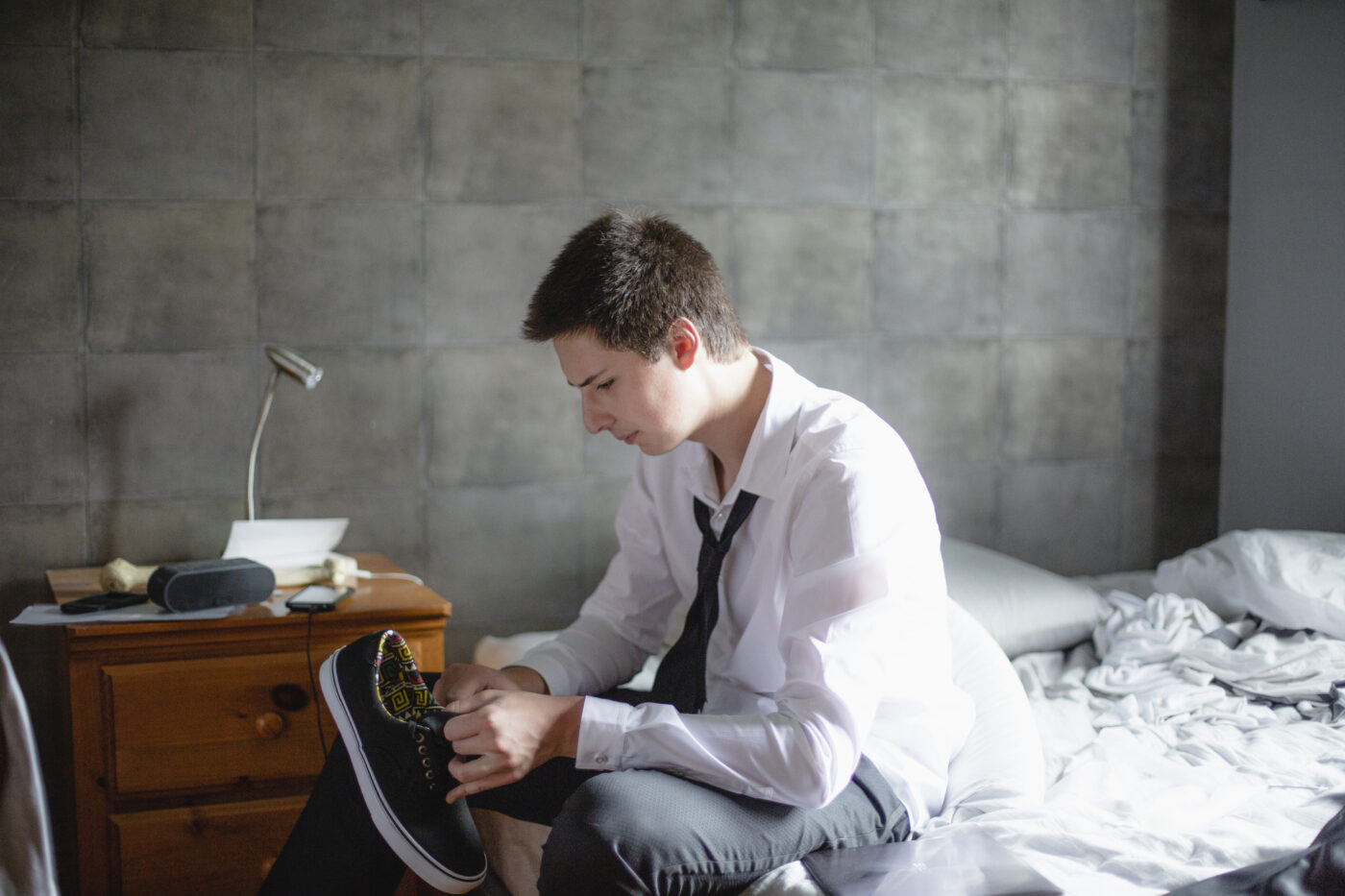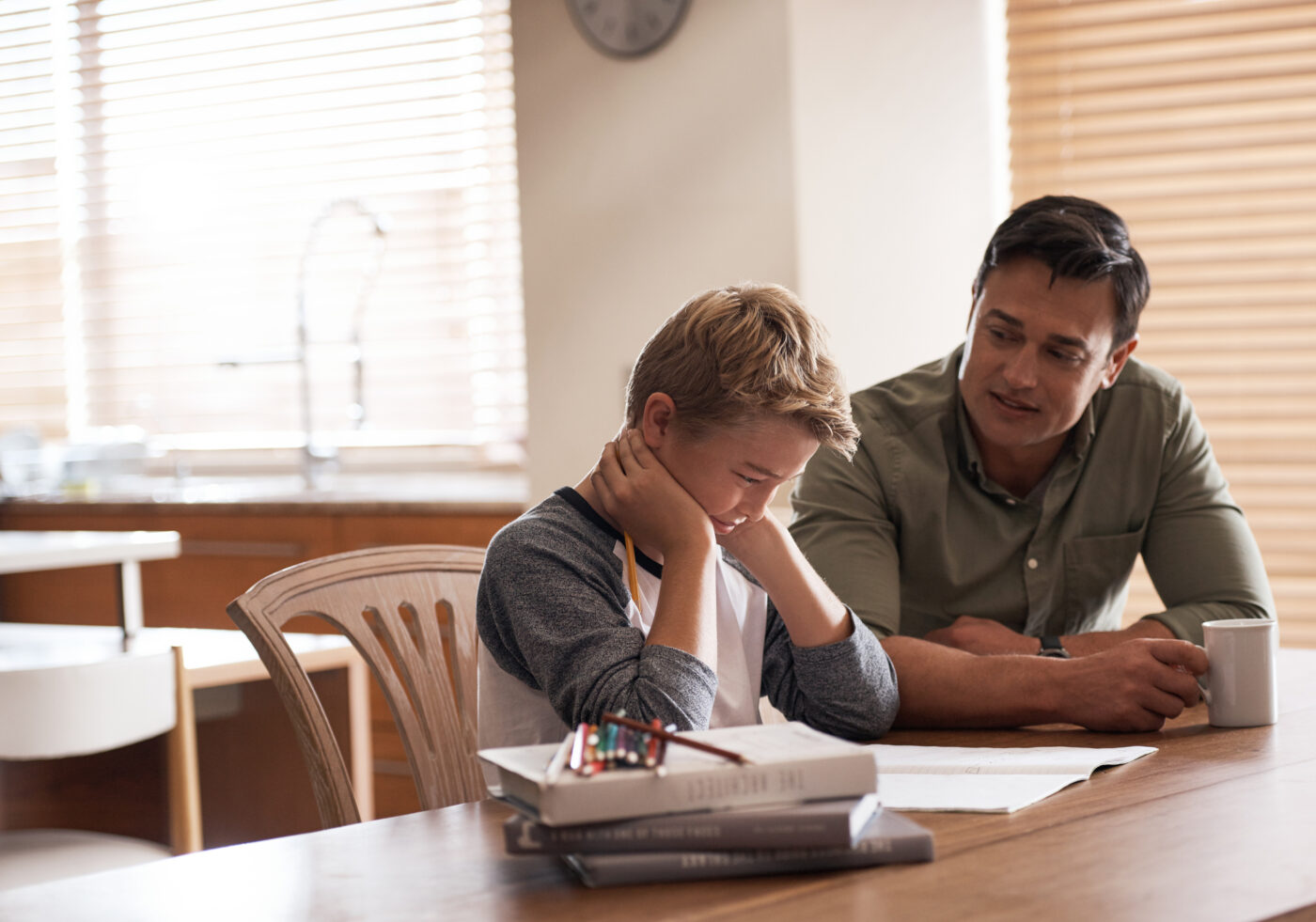When we were young parents, we read all the parenting books people would recommend to us. We went to parenting classes. We had mentors. All of this was incredibly helpful, but none of it adequately prepared us for the transition into parenting teens. Parenting teens is like a graduate level class in parenting and letting go. However, in this class, your teachers are your kids, and they are tough graders.
Despite this, parenting teens can be a wonderful experience. And there are some lessons I learned that, the more I embraced them, the better it got. Here are 5 hard lessons I learned from parenting teens.
1. My teen doesn’t need me to be his friend.
It’s really easy to say this, but it’s not so easy to do. We want our kids to like us. We want them to think we’re cool and even to enjoy having their friends in our home. This can all tempt us to want to be more friend than parent. We hesitate to say no to something we genuinely think is bad for our kid because all his friends are doing it and we don’t want him to be mad at us.
But remember, he has plenty of friends, and he’s only got a couple of parents. You play a role in his life that no one else can play. He’s likely got lots of people who want him to like them. He’s got few who love him enough to do what’s best for him, maybe only two. As tempting as it is to choose an easier role, don’t do it. Be the parent, not the friend.
2. I can’t prevent my teen from getting hurt.
I wish I could hand pick all my teen’s friends and ensure that they are kind people who would never exclude anyone no matter what. I wish I could ensure that my teen would never be picked on or think she’s ugly or have her heart broken. But none of this is possible. Life is painful at times and no matter what you do as a parent, your teen will occasionally, and sometimes horribly, be hurt.
As a parent, your teen needs you to walk with her through it, cry with her, laugh with her and assure her she’ll make it through. Tell her stories of having your heart broken, being cut from the team or being betrayed by a friend. Help her to see that all of this is significant, but it’s not permanent. You can’t prevent your teen from getting hurt, but you can make sure she doesn’t walk through it alone.
3. Sometimes good parenting means making her cry.
If you told me someone was going to make my teenage daughter cry, I’d probably be ready to fight. Which is why it’s so hard to know that sometimes making the right choice for my teen means being willing to make her cry. Of course that’s not your goal. But given the hormonal swings of the teenage years, it’s highly likely that saying “no” to something might just bring about tears.
Say no anyway. The emotions ebb and flow. Your job is not to make her happy but to do your best to help her flourish now and in the long run. No one likes to say no, but love compels us to do so, even when it brings tears.
4. Sometimes good parenting means she makes you cry (or want to).
To be fair, the emotions of the teen years aren’t located exclusively in the teens. Parenting teens can be an incredibly emotional experience as well. Whether it’s tears of pride at her accomplishments or tears of sadness when she tells you she hates you, this experience is not for the faint of heart.
And yet, good parenting requires us to keep our hearts engaged. We must still keep showing up, keep loving, keep disciplining, keep hoping. As C.S. Lewis said, “To love is to be vulnerable.” And the alternative to vulnerability is a heart that is impenetrable and irredeemable. So as much as it hurts, stay open, stay engaged. Keep loving her, even through tears.
5. Teens need your presence more than your perfection.
You will make mistakes. We’ve already covered how difficult it is to parent teens. You’re going to yell when you shouldn’t. You’ll say “no” when you should say “yes” and vice versa. There will be many times when you feel like you could’ve done a better job. Own it. Admit it to your kid. But whatever you do, don’t pull back.
Your teen needs your presence, not your perfection. She needs to know you’re with her, even when she’s mad at you. That doesn’t mean you shouldn’t respect when she needs alone time. Of course you should. But look for ways to consistently communicate that you are with her, no matter how she feels about you at the time.
Sound off: What hard lessons have you learned from parenting teens?











Huddle up with your kids and ask, “What do you think are some good things that can come from pain?”